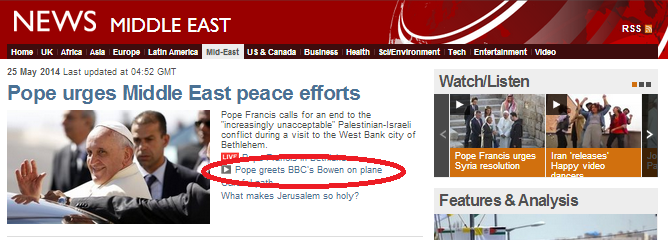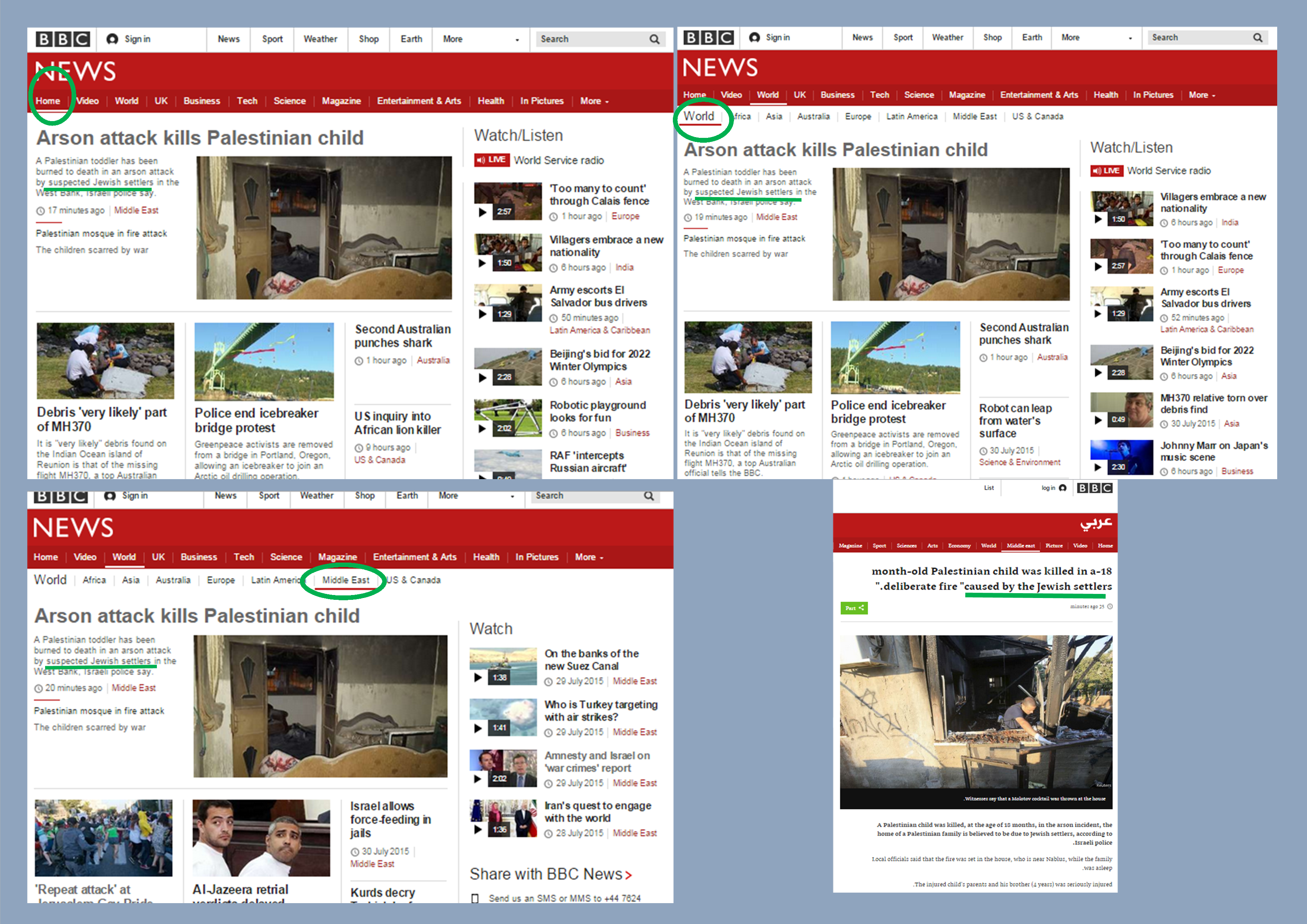With a week to go until the Israeli elections on January 22nd 2013, the BBC’s coverage of the subject has so far been extremely sparse. The Jerusalem Bureau’s Kevin Connolly has produced a few items, including a December 20th article focusing mainly upon Binyamin Netanyahu’s chances of re-election and an item on the BBC Radio 4 ‘Today’ programme of January 7th about the Israeli politician Western journalists love to hate – Avigdor Lieberman. 
Apart from that, BBC audiences will so far have scant idea of the characteristics of the thirty-odd parties standing for election, their political leanings or their manifestos. They will know little about the women heading some of those parties such as Sheli Yechimovitch, Tsipi Livni, Zahava Galon or Asma Agbarieh-Zahalka. They will not know, for example, that in addition to the usual Arab parties, a new one named “The Hope for Change” is running this year on a very different platform than that usually offered to Arab voters or that there are two parties running which aim to represent Israel’s Ethiopian community.
Instead, like much of the Western media, the BBC so far seems intent upon portraying these elections in terms of an ominous shift to the right by the Israeli electorate and revolving solely around the issue of peace with the Palestinians.
The kind of interpretation of the Israeli political scene which appears to be prevalent at the BBC is represented in this blog post from Robin Lustig, who recently stepped down from his BBC posts after 23 years of presenting. As a now private citizen, Mr Lustig is of course entitled to write whatever he likes, but for those of us trying to make sense of the BBC’s coverage of Israel, he provides some valuable insights into the prevailing accepted wisdom in its corridors.
“Two-state solution? Forget it – even if President Obama really tries to push for a settlement (and let’s be honest, there’s been no sign so far that he intends to), Mr Netanyahu will simply say sorry, no can do, the Knesset won’t wear it.
Here’s the situation: Israelis have discovered they can live with the status quo. With the exception of those periods when Palestinian fighters fire rockets into Israel from Gaza, spreading real fear but causing mercifully few casualties, the vast majority of Israelis can get on with their daily lives without thinking about Palestinians at all.
So why even talk to them? Most Israelis still say they believe in a two-state solution, but it’s the sort of thing you can say without having to think too much about it. After all, anyone who looks at a map of where the Israelis have already built in the West Bank, which they’ve occupied now for more than 45 years – and where they intend to build – can see the reality: there’s no room left for anything that would remotely resemble a viable Palestinian state. […]
So, to many Israelis, it may look as if what they have now is sustainable, that somehow the Palestinians in the West Bank will eventually forget that they ever wanted a state of their own or the opportunity to decide their own futures — and that Palestinians in Gaza will no longer mind living in what they have long called the world’s biggest open-air prison.
In my view, this is a profound, and potentially disastrous, mistake. Israelis need only look to their neighbours in Egypt and Syria to see what happens when prolonged injustice is allowed to fester. But for now, what many Israelis see is a region mired in uncertainty and instability, and growing Islamist power which looks deeply alarming.
That, I suspect, is why they’re turning to leaders who speak the language of strength and resistance to compromise. What matters to them is not whether they’re liked, or even whether they’re approved of. What matters is that they’re feared. “
Beyond his disturbingly ill-informed and superficial sound-bites (for a more nuanced view, Mr Lustig – and the recipients of his newsletter which recently included this blog-post – might like to read this recent article by Daniel Gordis), Robin Lustig provides an excellent example of the widely popular ‘doom and gloom’ approach to anticipated results of the democratic process in Israel.
And of course what is really interesting about that approach – characterized as it is by the frequent use of adjectives such as ‘hardline’,  ‘right-wing’, ‘nationalist’ or ‘hawkish’ – is the glaring contrast with the way in which the BBC approached the elections in Tunisia and Egypt, for example.
‘right-wing’, ‘nationalist’ or ‘hawkish’ – is the glaring contrast with the way in which the BBC approached the elections in Tunisia and Egypt, for example.
Tunisia’s winning party Ennahda was repeatedly described as “moderate Islamist” by the BBC and one will certainly not find any of those above adjectives used to describe Mohamed Morsi, who – the BBC was very keen to inform audiences on multiple occasions – is “quietly” or “softly spoken”. In fact, as long as the ‘Arab Spring’ elections could be described as free and democratic, the BBC seemed to be perfectly willing to enthusiastically embrace the people’s choice, no matter what the ideology of those elected.
Any rightward shift which may or may not take place in next week’s vote in Israel will be the result of free and democratic elections. It is a pity that the BBC seems too often to be unable to appreciate that the Arab-Israeli conflict is just one of many issues facing those going to the polls or to respect the right of Israeli voters to make their own choices – even if those choices do not square up to the BBC world view.




